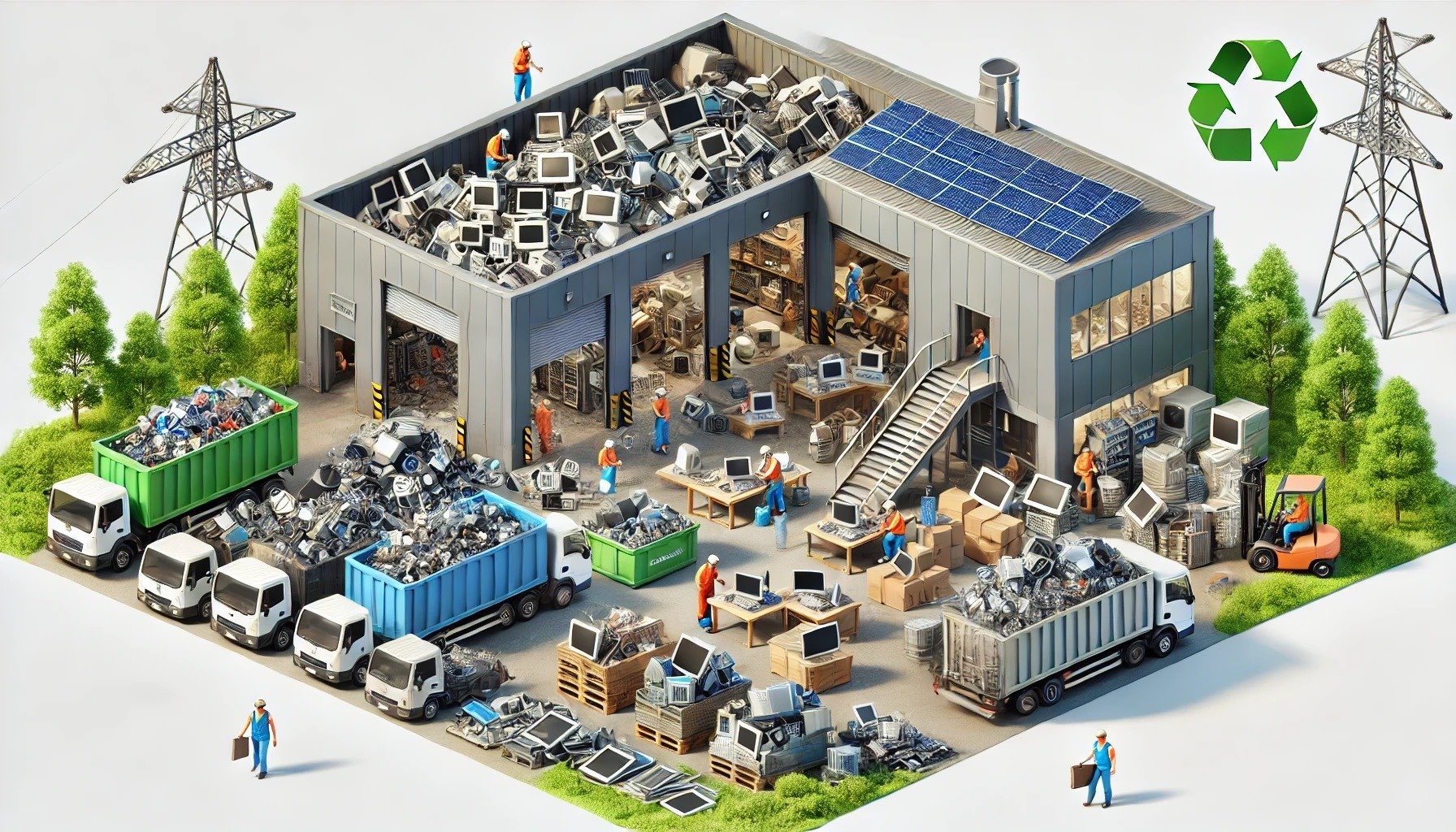Electronic Waste Recycling

Recycling electronic waste offers significant environmental and economic benefits. The recycling process begins with the collection and sorting of waste. Electronic waste is gathered at special collection points and separated by type. This sorting process is crucial for the efficiency of the recycling process. Effective collection and sorting increase the quality of recoverable materials and minimize environmental damage. It is essential at this stage to control hazardous materials contained in electronic devices and prevent them from entering the environment.
After collection and sorting, electronic waste is disassembled, and reusable parts and recyclable materials are separated. This process enables the recovery of valuable metals and other components from electronic devices. Dismantling and shredding waste into smaller, manageable pieces facilitate more efficient processing at recycling facilities. Separating reusable parts prevents resource waste and creates economic value.
Materials such as metal, plastic, and glass are recovered from the shredded waste. These materials are used as raw materials in new production processes. This reduces the consumption of natural resources and saves energy. Material recovery reduces the environmental impact of waste while creating economic value. For example, recovered metals reduce the need for mining activities, which decreases both economic and environmental costs. Additionally, reusing recovered materials saves energy in production processes and reduces the carbon footprint.
The separated materials are processed at appropriate recycling facilities and used in the production of new products. This process reduces environmental pollution and helps conserve natural resources. Recycling facilities ensure that waste is processed effectively and that recovered materials can be reused safely and of high quality. Technologies and methods used in the recycling process are continually developed to increase recovery rates and minimize environmental impacts.
Requirements for Effective Electronic Waste Management
Successful electronic waste management requires public awareness and education. Educational campaigns and programs should be organized to raise awareness about the importance of recycling electronic waste. Through these efforts, individuals can learn how to properly dispose of waste and understand the importance of recycling. Awareness and education are vital for proper waste management and increasing recycling rates. Educational campaigns should reach all segments of society, starting from schools, to build awareness about electronic waste recycling.
Governments should establish strict legal regulations and standards for electronic waste management. These regulations should define the responsibilities of both producers and consumers. Legal regulations set standards and rules for every stage of the recycling process, ensuring that electronic waste management is conducted in a disciplined and effective manner. Legal regulations also include the necessary permits and inspections for establishing and operating recycling facilities.
Electronic device manufacturers should be responsible for the recycling processes of their products and adopt sustainable production methods. Producer responsibility is crucial at every stage of the recycling process, from beginning to end. Manufacturers should take measures to facilitate recycling in product design and reduce the use of hazardous materials. Additionally, manufacturers should provide information to consumers about recycling and encourage proper disposal of products at the end of their life cycle.
An adequate number of well-equipped recycling facilities should be established, and existing facilities should be improved. These facilities must ensure effective processing of waste. Recycling facilities should have the technological infrastructure needed for sorting, processing, and recovering waste materials. Moreover, these facilities must be operated in compliance with environmental and health standards. Increasing the capacity of recycling facilities results in more effective waste management and higher recycling rates.
The recycling and management of electronic waste are crucial for a sustainable future. Proper management of electronic waste minimizes environmental damage and provides economic benefits. Public awareness, legal regulations, and producer responsibility are significant steps towards achieving these goals. Every step taken in electronic waste management contributes to the protection of our environment and creates a more livable world for future generations. Effective implementation of recycling processes supports the conservation of natural resources and environmental sustainability. Additionally, it contributes to the recycling economy and creates new job opportunities. Proper management of electronic waste is part of our responsibility to leave a healthier and cleaner environment for both current and future generations.
 Türkçe
Türkçe English
English